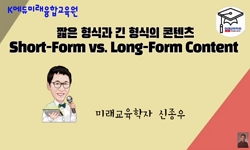본 연구는 최인훈의 태풍을 역사부정을 소설화한 것으로 보며 전사(前史)와 후사(後史)의 형식으로 파악한다. 태풍의 전사에서 아시아-태평양전쟁 시기, 일제 식민 정권 군대의 �...
http://chineseinput.net/에서 pinyin(병음)방식으로 중국어를 변환할 수 있습니다.
변환된 중국어를 복사하여 사용하시면 됩니다.
- 中文 을 입력하시려면 zhongwen을 입력하시고 space를누르시면됩니다.
- 北京 을 입력하시려면 beijing을 입력하시고 space를 누르시면 됩니다.

1970년대의 전환시대 한반도에 대한 역사부정의 형식― 최인훈의 태풍 (1973)을 중심으로 = The Form of Historical Denial on the Korean Peninsula in the Decade of Transition of the 1970’s - Focused on Choi Inhoon's Typhoon(1973)
한글로보기https://www.riss.kr/link?id=A109788166
-
저자
최윤경 (전남대학교)
- 발행기관
- 학술지명
- 권호사항
-
발행연도
2025
-
작성언어
Korean
-
주제어
Choi In-hun ; Typhoon ; Historical Denial ; Form ; Decade of Transition ; Shame ; 최인훈 ; 태풍 ; 역사부정 ; 형식 ; 전환시대 ; 부끄러움
-
등재정보
KCI등재
-
자료형태
학술저널
-
수록면
181-201(21쪽)
- 제공처
-
0
상세조회 -
0
다운로드
부가정보
국문 초록 (Abstract)
본 연구는 최인훈의 태풍을 역사부정을 소설화한 것으로 보며 전사(前史)와 후사(後史)의 형식으로 파악한다. 태풍의 전사에서 아시아-태평양전쟁 시기, 일제 식민 정권 군대의 하사관으로서 식민지인 자기 동포에 대해 적대적 입장에 있는 인물이 부각되고 있다. 그런가 하면 태풍의 후사는 세계사적으로 냉전에서 데탕트로 대전환의 시기였던 1970년대를 배경으로 한다. 당시 한반도는 세계사적인 화해의 분위기와 다르게 냉전으로 역주행했다. 그런데 태풍의 후사에서 동아시아의 평화와 한반도의 통일이라는 낙관적 세계가 펼쳐지고 있다. 전사에서 식민지배와 전쟁범죄에 가담했던 인물이 후사에 반성 없이 평화와 통일을 말하고 있다는 것이 태풍에서 문제적인 지점이다. 이러한 태풍의 후사는 냉전의 퇴행적 일로를 걸었던 박정희의 유신시대를 역으로 투영한다. 1970년대의 현재를 일제 식민지의 한반도를 둘러싸고 전개된 역사와 흡사하게 재구성되는 시대로 말하고 있는 것이다. 최인훈 태풍에 대한 이러한 형식 규명은 일본의 불법적인 식민지배에 대한 반성과 비인도적인 전쟁범죄에 대한 책임이 요원하고 탈진실이 점점 세력화되고 있는 우리 시대를 반추하는 데 참조점을 제공할 수 있을 것으로 기대한다.
다국어 초록 (Multilingual Abstract)
This study identifies Choi In-hoon's Typhoon as a narrative composition of the denial of history and investigates its form as the front and the rear history. It emphasizes a character who displays a sense of hostile to his own compatriots as a sergean...
This study identifies Choi In-hoon's Typhoon as a narrative composition of the denial of history and investigates its form as the front and the rear history. It emphasizes a character who displays a sense of hostile to his own compatriots as a sergeant of the Japanese colonial government forces in the front history, the period of Asia-Pacific War . On the other side. It was set in the background of the 1970s, an Decade of transition to ‘Détente’ from ‘Cold’ in world, in the rear history. At the time, the Korean peninsula slipped back into the Cold War in contrast to the atmosphere of world-historical reconciliation. But It's unfolding the optimistic world of peace in East Asia and the unification of the Korean Peninsula in the rear history of Typhoon.It can be questioned that the people participated in colonialism and war crimes in the front history mentioned the peace and reunification without reflection in the front history. These rear history projects the Park Chung-hee’s renovation period which reached to the regressive course of the Cold War in reverse and it refers the present day of the 1970s as an era that is reconstructed similar to the history that unfolded around the Korean Peninsula in colony of Japanese colonization. This identification of Choi In-hoon in Typhoon can be a point of reference for reflecting on our time, which the reflection of Japan's illegal colonization of Korea and the responsibility for inhumane war crimes not like come true and the trend of breakaway from the truth are becoming more and more prevalent.
동일학술지(권/호) 다른 논문
-
현진건 장편소설 적도에 나타나는 정사(情死)의 지연 양상 연구
- 한국비평문학회
- 강다은
- 2025
- KCI등재
-
김영하 초기 소설의 인식론 고찰― 단편집 호출 을 중심으로
- 한국비평문학회
- 백창익
- 2025
- KCI등재
-
‘여성’ 표상에 대한 이중적 시선― 박인환 시에서 ‘창부’와 ‘숙녀’ 사이의 거리
- 한국비평문학회
- 김지녀
- 2025
- KCI등재
-
소설에서의 생존 게임― 김영하의 퀴즈쇼 와 왕샤오보(王小波의 황금시대(黃金時代) 를 중심으로
- 한국비평문학회
- 적우비
- 2025
- KCI등재




 KCI
KCI






